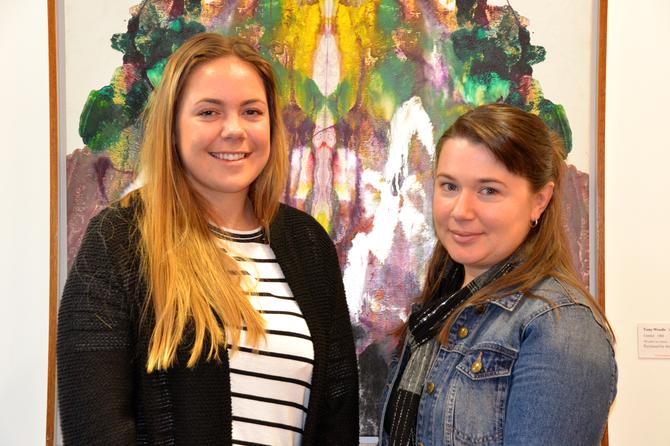For University of Tasmania psychology honours student Jane Sutcliffe, being part of new research into domestic violence is something she is passionate about.
With her own mother’s career being closely connected to domestic violence and its effects, Miss Sutcliffe’s path to her latest project focusing on community attitudes towards domestic violence, is something she is driven to make inroads into.
“My mother was a domestic violence support worker for 20 years, worked in child protection and was a police officer,” she said.
I have grown up hearing about the effects of domestic violence and also seen friends in high school affected by it even at a young age, so it hits quite close to home.
The ‘Understanding Australian community attitudes towards domestic violence’ study will be carried out by Miss Sutcliffe alongside Dr Kimberley Norris, from the Faculty of Health’s School of Medicine (Psychology), via a 20-minute online questionnaire.
The pair are currently trying to recruit more than 400 volunteers from around the country to take part in the study, which ultimately aims to provide a solid research base for future Australian policy, education, intervention and support programs.
Dr Norris said the pair were prompted to make the study a reality after discovering there had been little solid, wide-scale, empirical research done in Australia on attitudes to domestic violence.
Domestic violence impacts so many people in society and most individuals would have some awareness of at least someone they know impacted by domestic violence in some way.

“However most of the research on community attitudes has been done in the US and we are actually very different to the US in many ways, in terms of societal norms, and even our political climate around domestic violence.”
A clinical psychologist, as well as a lecturer at the University, Dr Norris said while there seemed to be more people discussing domestic violence in the community, it was important to ascertain what the community was saying.
In particularly the pair wanted to see whether the issue of domestic violence was still considered ‘private’ or whether more people were now open to seeing it at a community level.
“These community perceptions are an imperative part of understanding and dealing with domestic violence,” she said.
“To be able to provide information to guide policy, education, intervention and support programs, we need to understand the reality of the situation that impacts Australians,
Community attitudes can also act as facilitators or inhibitors to seeking support [for victims and perpetrators], so understanding what messages at the community level are impacting individuals is important.
The study, due for completion by August, is part of a broader stepping stone to many larger scale projects around addressing domestic violence in Australia, including a closer look at the “severely under-researched” area of female perpetrators who make up about 14 per cent of all Australian domestic violence perpetrators.
“There are just so many projects we want to do after this because it is so interesting and there is such little research that has been done in this area,” Miss Sutcliffe said.
“This study will hopefully develop a foundation for future research.”
For more information email: Kimberley.Norris@utas.edu.au or janes11@utas.edu.au
To be a part of the study go to https://goo.gl/fhhQaB
Interested in conducting your own research? Apply now to become a research student.